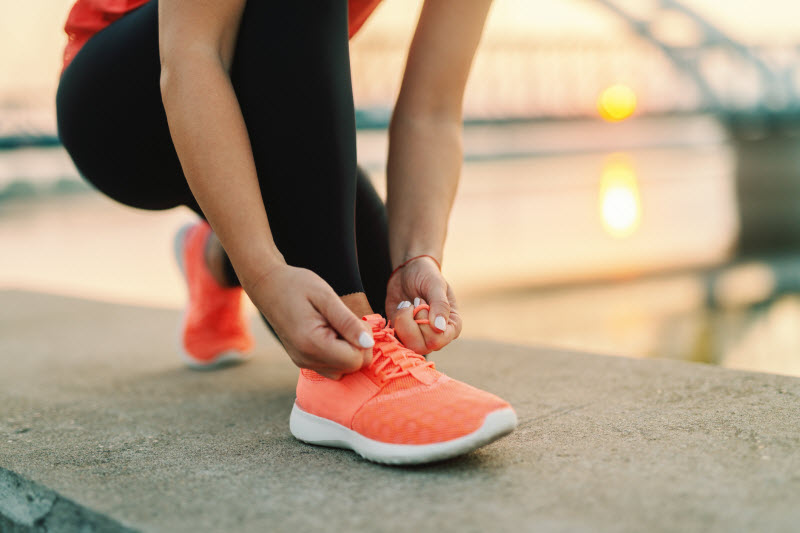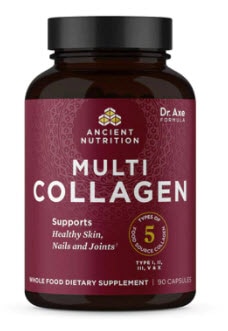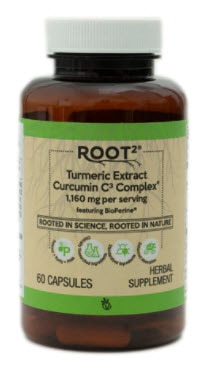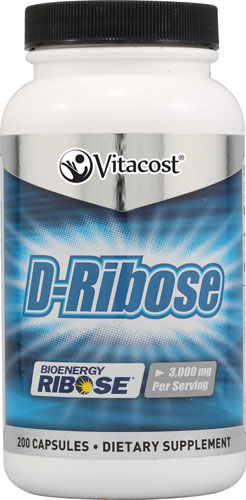Inflammation is defined as “a localized physical condition in which part of the body becomes reddened, swollen, hot and often painful, especially as a reaction to injury or infection.”
While some short-term inflammation is normal and even protective in some cases, for example when you’re recovering from an injury or infection, chronic inflammation has the opposite effect: it’s often a root cause of diseases such as diabetes, heart disease, arthritis and many others.

The connection between exercise and inflammation can be a confusing one, considering that some types of physical activity can worsen swelling and pain, but on the other hand, we know that exercise is often protective against obesity, immobility and many health conditions.
So does this mean exercise helps inflammation, or can it actually wind up aggravating it? Let’s look closer below.
The exercise and inflammation link
Studies show that regular, moderate exercise tends to
help lower markers of systemic inflammation — the type that is considered dangerous for overall health.
Exercise can support the immune system, which manages inflammation responses, in a variety of ways.
Here’s one example: recent research has found that just one 20-minute session of moderate treadmill exercise is capable of s
upporting a healthy inflammation response by regulating how many immune cells and inflammatory messengers are produced, including the types called necrosis factor and C-reactive protein (CRP).
This happens because hormones such as epinephrine, which are released into the blood stream during exercise, trigger adrenergic receptors which immune cells possess.
Other ways that exercise keeps inflammation in check is by helping people to maintain a healthy weight and avoid obesity, by boosting blood flow and circulation, and by aiding in functions of the lymphatic system which support detoxification.
Some inflammation is actually expected when you work out, since physical activity is a considered a positive form of “stress” that causes your body to adapt and grow back stronger.
You can actually thank inflammation in part for the increased strength, coordination and stamina you experience when you regularly workout and push yourself (in appropriate amounts, that is).
That being said,
too much exercise (also called over-training) can contribute to systematic inflammation by adding too much stress to the body.
Which types of exercises decrease inflammation?
Regular, moderate types of exercise seem to be best for managing inflammation. The main goal is to avoid being sedentary and to stay active in a variety of ways into older age, which supports not only immunity but also balance, flexibility and so on.
Here are some
examples of “moderate exercise”:
- Daily brisk walking which equals about 150 minutes every week (for example, 30 minutes a day, 5 days a week)
- Similar amounts of cycling, swimming, jogging or running
- Muscle-strengthening activities on 2 or more days a week that work all major muscle groups including the legs, hips, back, abdomen, chest, shoulders, and arms)
- Gentler forms of exercise such as yoga, pilates and dancing
Exercises that can increase inflammation
When it’s overdone, meaning too frequently and too intensely without enough time for recovery, exercise can wind up leading to increased markers of chronic inflammation. Studies show an increase in markers of inflammation only after intensive and long exercising without enough rest.
Whether or not exercise is beneficial for someone’s help or not depends on the extent of tissue damage someone experiences while working out (some damage is normal) plus how much stress their body can handle. If someone becomes injured while working out but doesn’t give themselves a chance to health, the injury may become more severe and harder to recover from as inflammation worsens.
You’re at increased risk for experiencing inflammation from exercise if you do too much:
- CrossFit style workouts, intense circuits or heavy lifting without enough rest
- Marathon training, including running and cycling
- Competitive sports that involve lots of endurance, impact and repetitive movements, such as soccer, football, etc.
Aim to strike a balance by incorporating a mixture of physical activities and
rest periods into your week. A general recommendation is to workout moderately four to five times a week. You might have one or two of these days be more challenging more workouts, and then rest for the remainder of the week.
Ideally try to aim for three days of aerobic exercise (walking, running, using the elliptical) and two days of circuit training or weight training.
Anti-inflammatory foods and supplements
In addition to completing an appropriate amount of exercise each week, you can improve your diet to greatly help manage inflammation. Here are some components of eating an
anti-inflammatory diet:
- Add fruits and vegetables to your meals each day, striving for 4 or more servings daily combined.
- Try consuming at least 25 grams of fiber every day
- Incorporate some of the top anti-inflammatory foods in your diet each week, such as: leafy greens, garlic, onions, berries, citrus fruits, herbs and spices like turmeric and garlic, other veggies like broccoli and peppers, etc.
- Avoid processed and packaged foods as much as possible, emphasizing whole foods instead
- Consume foods rich in omega-3 fatty acids often, such as fish such as salmon, sardines and nuts and seeds
- Eliminate all trans fats and as much added sugar as possible, from things like sugary drinks, desserts, and fast food
- Consider supplementing with a turmeric supplement for added immune support, plus SBO probiotics for gut support (your gut is where the majority of your immune system is located)
- Multi-Collagen Protein powder or Bone Broth Protein powder can also help support exercise recovery by providing you with amino acids that help repair bodily tissues
Featured products


 The connection between exercise and inflammation can be a confusing one, considering that some types of physical activity can worsen swelling and pain, but on the other hand, we know that exercise is often protective against obesity, immobility and many health conditions.
So does this mean exercise helps inflammation, or can it actually wind up aggravating it? Let’s look closer below.
The connection between exercise and inflammation can be a confusing one, considering that some types of physical activity can worsen swelling and pain, but on the other hand, we know that exercise is often protective against obesity, immobility and many health conditions.
So does this mean exercise helps inflammation, or can it actually wind up aggravating it? Let’s look closer below.





